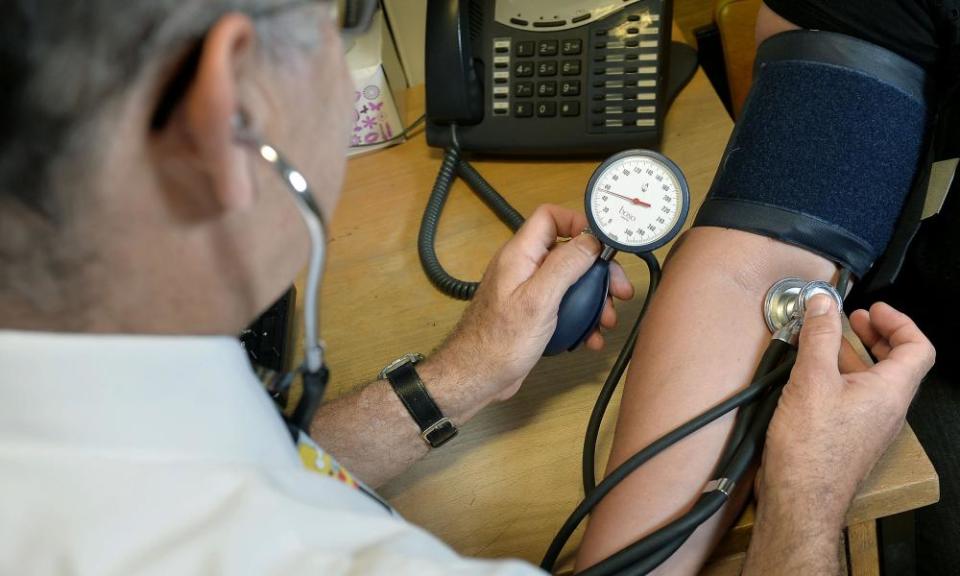A third of middle-aged UK adults have at least two chronic health issues – study

More than one in three middle-aged British adults are suffering from at least two chronic health conditions, including recurrent back problems, poor mental health, high blood pressure, diabetes and high-risk drinking, according to research that warned that health in midlife is on the decline.
The study of “generation X” adults born in 1970 found that those who grew up in poorer families were 43% more likely to have multiple long-term health conditions than their peers from wealthier households. Those who had been overweight or obese as children, who had lower birthweight and who had experienced mental ill-health as teenagers were also at increased risk of poor health in midlife.
Dawid Gondek, the UCL researcher who authored the paper, said: “This study provides concerning new evidence about the state of the nation’s health in midlife. It shows that a substantial proportion of the population are already suffering from multiple long-term physical and mental health problems in their late 40s, and also points to stark health inequalities, which appear to begin early in childhood.”
Gondek urged public health agencies to target middle-aged people with advice on how to look after their health since improvements have been linked to higher life satisfaction and earnings in earlier research. “Compared to previous generations, it appears that the health of British adults in midlife is on the decline,” he said.
The study is based on data from a nationally representative group of around 8,000 British adults who have participated in the 1970 British Cohort Study since they were born, more than 50 years ago.
At age 46-48, in 2016-18, they were asked to report on whether they had chronic physical and mental health conditions while nurses measured their blood pressure and took a blood sample to check for diabetes.
One third (34%) of the adults surveyed had multiple chronic health problems, with 26% engaged in high-risk drinking, while 21% reported recurrent back issues, and 19% experienced mental health problems. One in six (16%) had high blood pressure, 12% were suffering from asthma or bronchitis, 8% had arthritis and 5% had diabetes in midlife.
Adults from poorer backgrounds had almost three and half times higher risk of suffering from mental ill-health and arthritis, and about three times the risk of having poor mental health and high blood pressure in their late 40s.
Those who had experienced physical and mental health problems as children, including lower birthweight, higher body mass index, lower cognitive ability at age 10 and worse emotional and behavioural issues at age 16 were also more likely to suffer from multiple chronic health problems.
Prof George Ploubidis from UCL’s Centre for Longitudinal Studies said: “If these links reflect causal effects, policy and practice targeting these core areas in childhood and adolescence may improve the health of future generations and alleviate potential pressures on the NHS.”

 Yahoo Finance
Yahoo Finance 